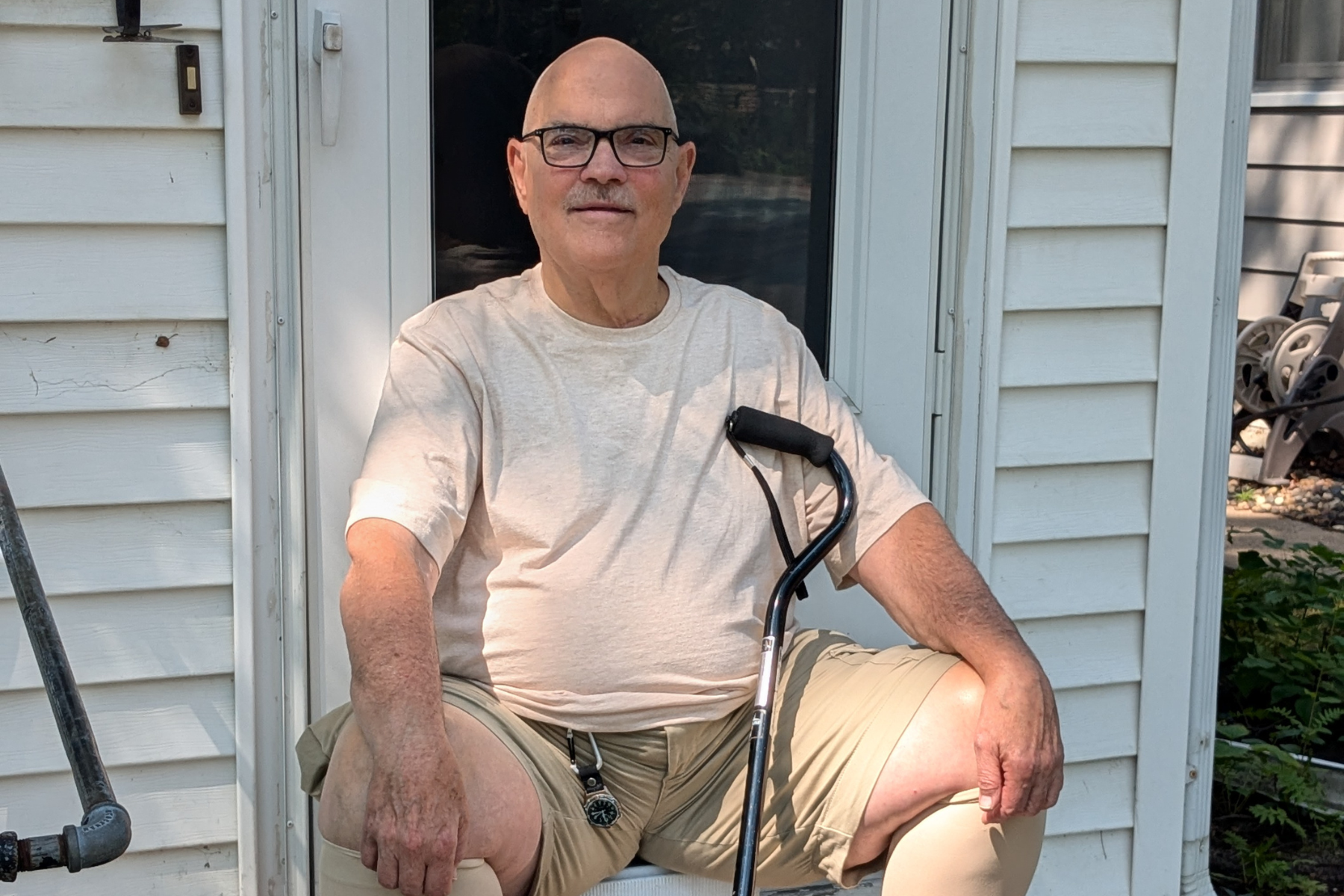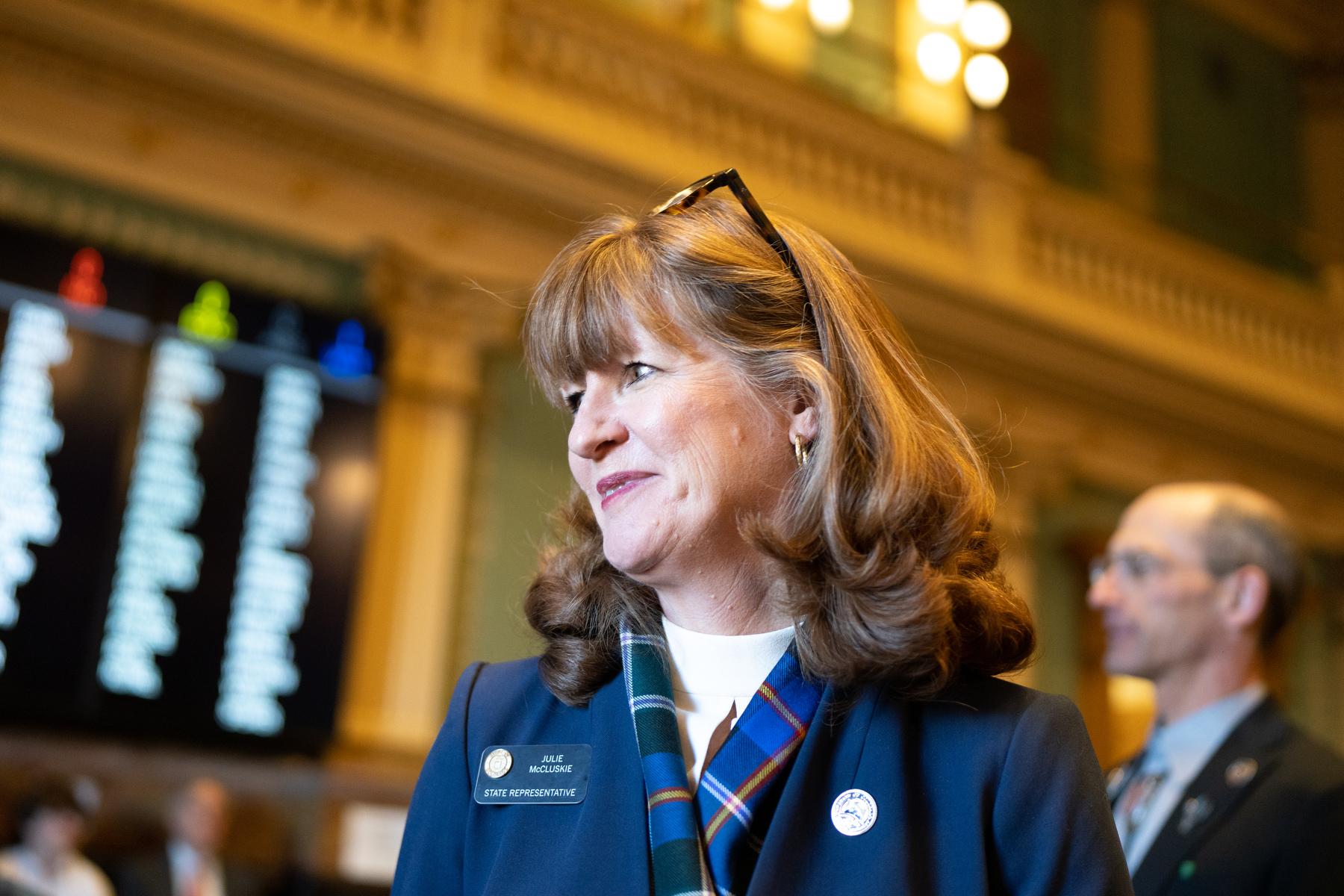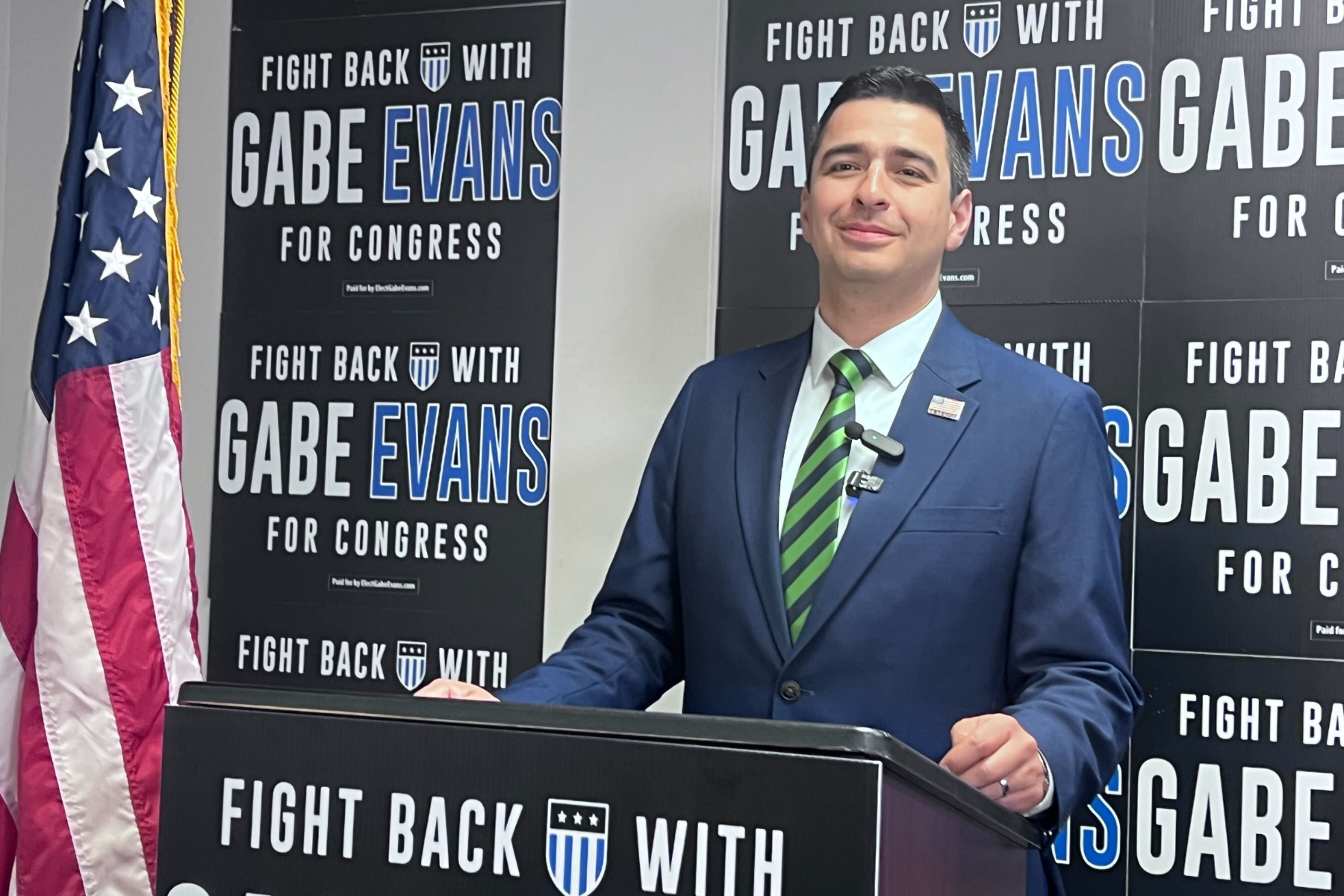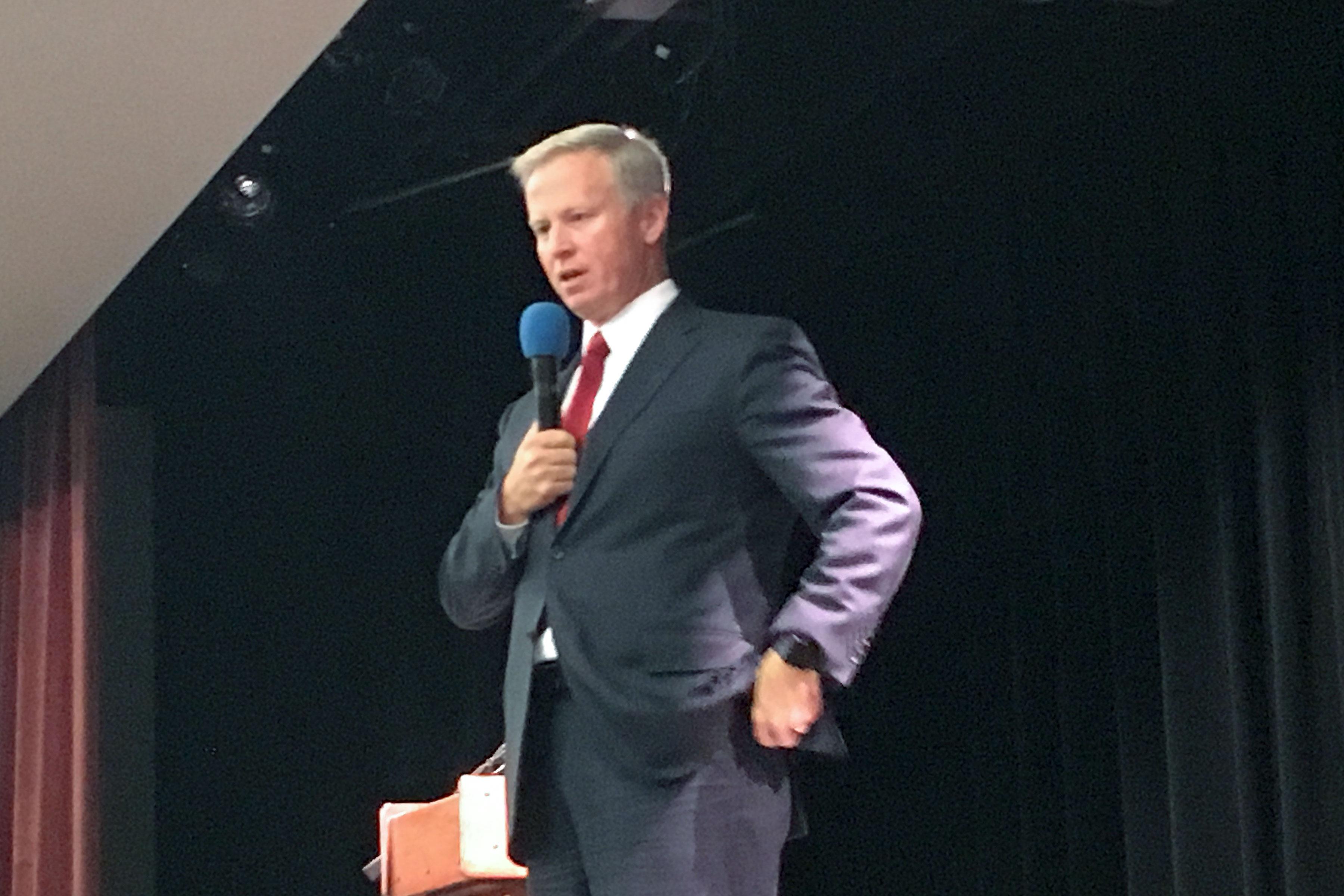
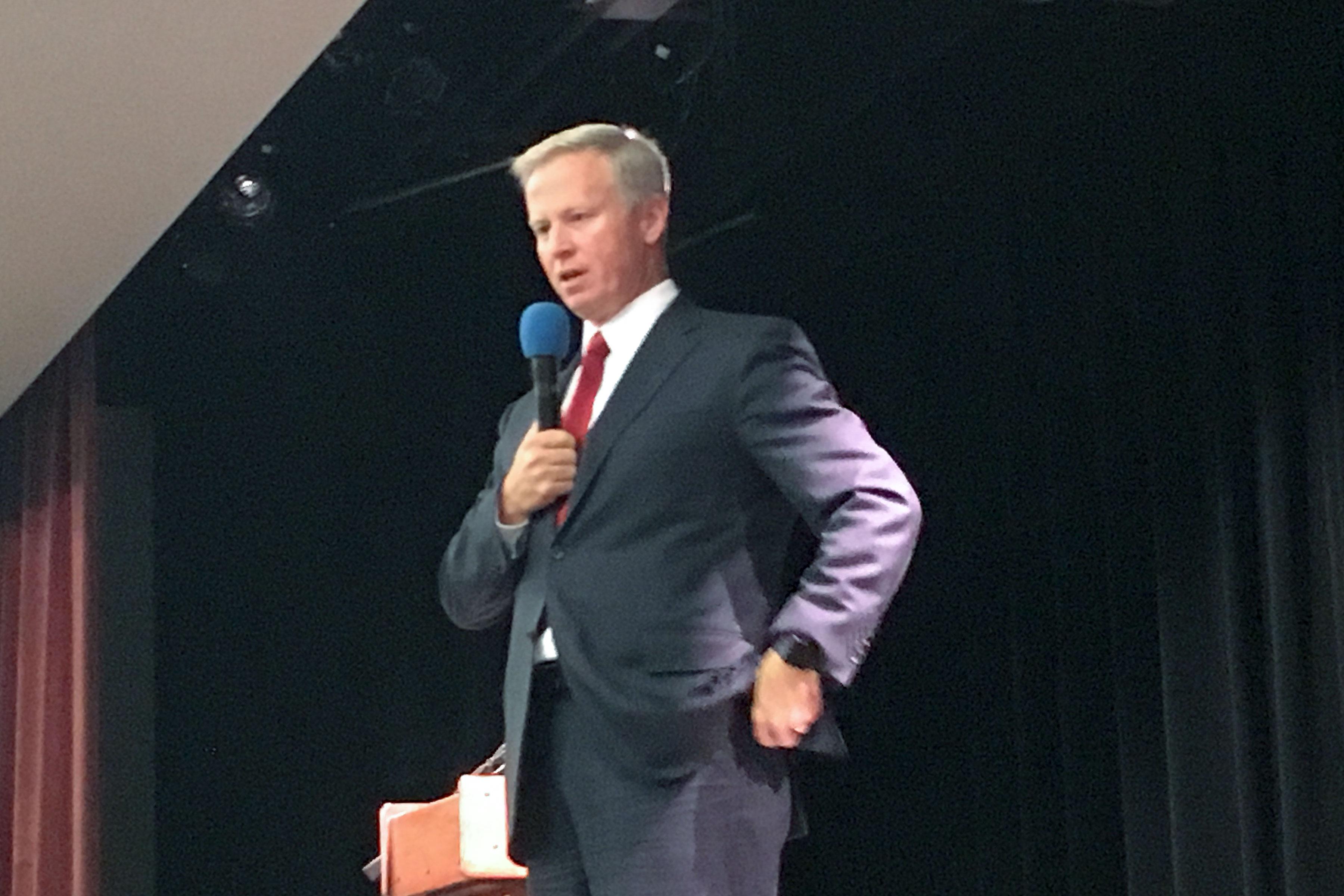
The two men vying to become the next state attorney general clashed on marijuana legalization, sanctuary cities and gun rights in their first head to head forum Tuesday.
Both Republican George Brauchler and Democrat Phil Weiser said they wouldn’t do anything to thwart recreational marijuana legalization which Colorado voters passed in 2012.
But Brauchler, the Arapahoe County district attorney, said he wants to take a hard look at the law’s negative consequences in Colorado — noting he counted 11 first degree murder cases in his judicial district related to illegal transactions of marijuana since 2012.
“That doesn’t make any sense, but that’s what’s taking place here,” he said to a room full of seniors at the Wind Crest retirement community in Highlands Ranch. “The other thing you should know is that marijuana that is grown and that is usually along the southern part of the state … it’s not just Coloradans growing it, it’s people coming in from the south.”
Weiser, who served in the Obama administration before leading the University of Colorado law school, applauded the state’s marijuana law as an integral step to criminal justice reform.
“We used to put people in jail who bought and smoked marijuana,” he said. “We don't do that anymore.”
Weiser said he would like to decriminalize possession of other illegal drugs, including opioids — moving people out of jail and into court-ordered treatment programs.
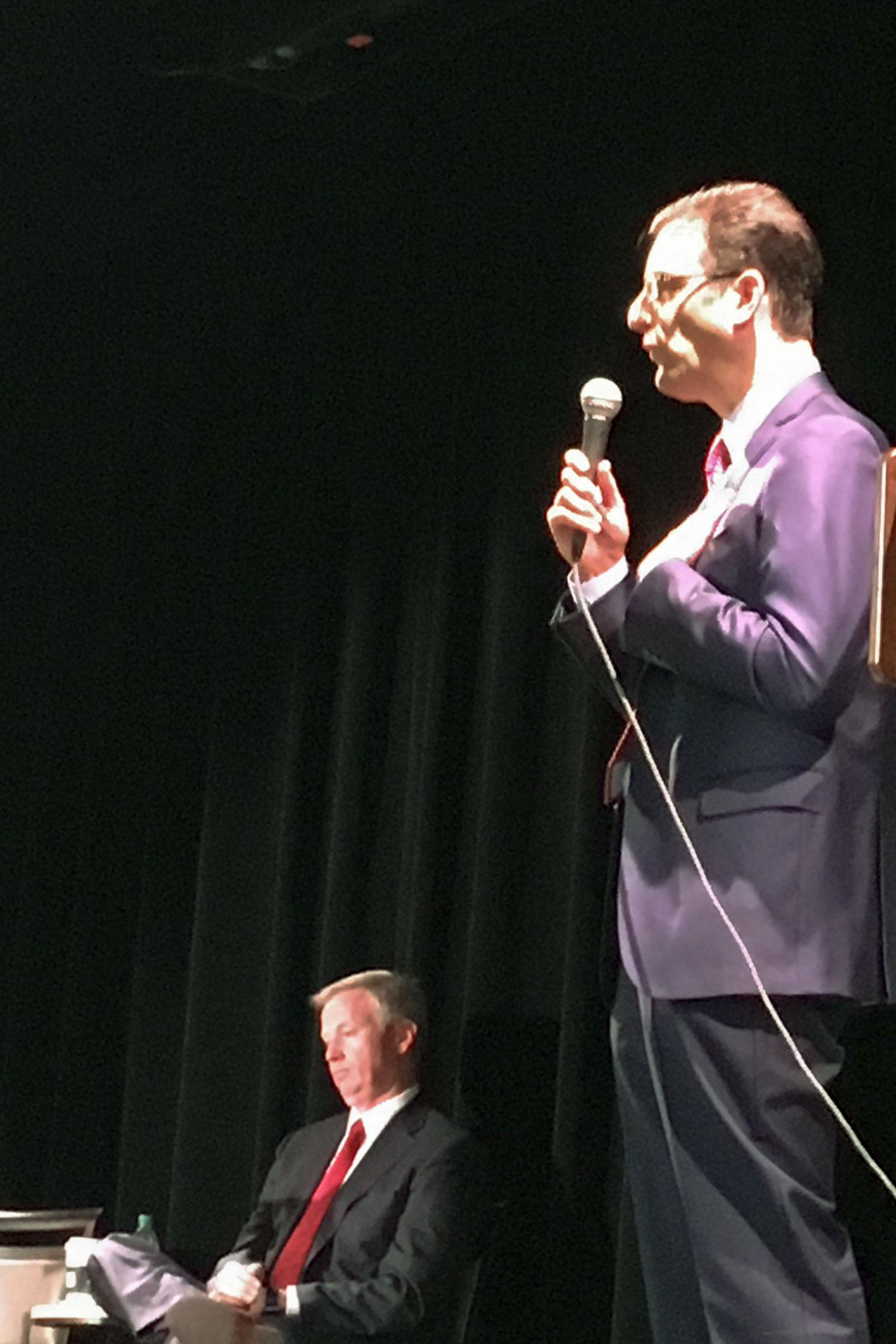
On sanctuary cities, Weiser called them safer because more people will cooperate with local police if they’re not afraid of being turned in to immigration enforcement. He held up Denver, which has banned city employees from sharing too much information with ICE, as an example of a place he would defend as attorney general.
“This is personal to me, my mom was an immigrant,” he said. “What is happening now on the border, it’s wrong.”
Brauchler said it wasn’t up to cities and states to create their own rules around immigration enforcement.
“As much as we want to think every single one of them is coming here to be a hard worker, we know that’s not true,” he said, telling the story of a man from Mexico who was a serial rapist he prosecuted.
When asked about gun rights, Brauchler also touted his prosecution of the Aurora Theater Shooting and his support of the so-called red flag law in the legislature which gives law enforcement or family members permission to restrict gun rights for people they think are dangerous.
“I’ve had the opportunity to explore these shooters, I’ve had the opportunity to hold them accountable,” he said. “The status quo is not acceptable … and if the status quo is not acceptable, then we must work to change it.”
Weiser called the moral urgency on gun availability clear, saying he would work to deflect the National Rifle Association’s push to liberalize gun laws.
“What was once unthinkable is now a looming threat,” he said. “We need to improve our laws, the red flag law … but also a ban on bump stocks. And other restrictions on making sure these weapons, weapons of war, don’t get into the wrong hands.”

